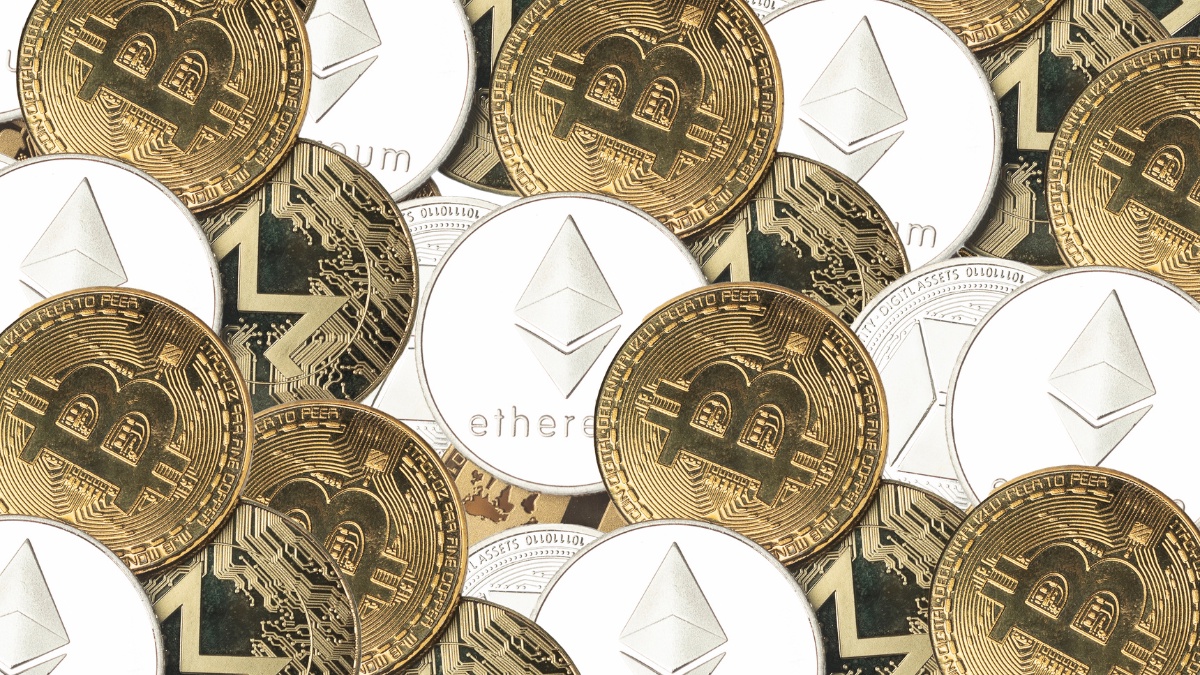In the ever-evolving landscape of blockchain technology, cryptocurrency tokens have emerged as a fundamental element. These digital units represent value and can be created, stored, and transferred securely on a blockchain. Tokenization has found applications across various industries, from finance and gaming to real estate and supply chain management. In this comprehensive guide, we will delve into the intricacies of cryptocurrency token development, covering everything from concept to implementation.

Cryptocurrency token development has emerged as a pivotal force in the blockchain and digital currency space. These tokens have revolutionized the way we transact, invest, and even raise capital. In this comprehensive guide, we will explore the fascinating world of cryptocurrency tokens, from understanding what they are to the steps involved in developing them.
Understanding Cryptocurrency Tokens
What are Cryptocurrency Tokens?
Cryptocurrency tokens are units of value issued by a project or organization. They are typically built on existing blockchain platforms, the most common being Ethereum, which supports the ERC-20 standard. Tokens are distinct from cryptocurrencies like Bitcoin or Ethereum, which have their own independent blockchains.
Token Types
- Utility Tokens: These tokens are designed to provide access to a specific product or service within a blockchain ecosystem. They are not meant for investment or speculative purposes.
- Security Tokens: These tokens represent ownership in an underlying asset, such as equity in a company or real estate. They are subject to regulatory compliance and may provide dividends or other financial benefits.
- Non-Fungible Tokens (NFTs): NFTs are unique, indivisible tokens that represent ownership of a specific asset, often digital art, collectibles, or virtual real estate.
Steps to Develop a Cryptocurrency Token
Step 1: Define the Purpose and Use Case
Before embarking on token development, it's crucial to identify the purpose of the token and the problem it aims to solve. This could range from creating a decentralized application (dApp) to enabling a new form of asset ownership.
Step 2: Choose a Blockchain Platform
Selecting the right blockchain platform is pivotal. Ethereum, Binance Smart Chain, and Polkadot are popular choices. Each platform has its own set of advantages and considerations, such as scalability, security, and development resources.
Step 3: Design the Token
a. Smart Contract Development
The token's functionality is defined through a smart contract, which is a self-executing code deployed on the blockchain. In Ethereum, this is typically written in Solidity.
b. Token Standards
For Ethereum, the most widely adopted token standard is ERC-20 for fungible tokens and ERC-721 for non-fungible tokens.
Step 4: Test the Token
Thorough testing is crucial to ensure the security and functionality of the token. This involves deploying it on a testnet to identify and rectify any potential issues.
Step 5: Deploy the Token
Once thoroughly tested, the token's smart contract is deployed on the chosen blockchain. This is a critical step as it establishes the token's presence on the network.
Step 6: Create a User Interface (UI)
To interact with the token, users need an interface. This could be a web application, mobile app, or a dApp that connects to the blockchain.
Step 7: Compliance and Regulation (for Security Tokens)
If developing security tokens, it's imperative to ensure compliance with relevant regulations, which may vary by jurisdiction.
Step 8: Launch and Marketing
A well-planned launch strategy, along with effective marketing, is essential for gaining traction and adoption of the token.
Security Considerations
Ensuring the security of the token and its ecosystem is of paramount importance. This includes secure smart contract development, regular audits, and robust key management practices.
Ongoing Maintenance and Upgrades
After the token's launch, ongoing maintenance is crucial. This includes addressing bugs, implementing upgrades, and staying abreast of any changes in the blockchain ecosystem.
Future Trends in Cryptocurrency Token Development
1. Non-Fungible Tokens (NFTs)
1.1 Rise of Digital Collectibles
Non-Fungible Tokens (NFTs) have taken the world by storm, enabling ownership of unique digital assets. In the future, we can expect NFTs to expand beyond art and entertainment, finding applications in gaming, virtual real estate, and even certification of physical assets.
1.2 Integration with Metaverse
As virtual worlds and metaverse environments gain popularity, NFTs are set to become a fundamental component of these spaces. From virtual real estate deeds to digital fashion items, NFTs will play a central role in shaping the virtual economy.
2. DeFi (Decentralized Finance)
2.1 Expansion of DeFi Ecosystem
Decentralized Finance has already disrupted traditional financial systems, but its potential is far from exhausted. The future of token development lies in creating DeFi tokens that facilitate lending, borrowing, insurance, and other financial activities without the need for intermediaries.
2.2 Yield Farming and Staking
Yield farming and staking mechanisms are likely to become more sophisticated, offering users innovative ways to earn rewards for participating in DeFi ecosystems. Token developers will focus on creating sustainable and secure yield-generating mechanisms.
3. Interoperability
3.1 Cross-Chain Compatibility
As different blockchain networks continue to thrive, the demand for interoperability will grow. Tokens that can seamlessly operate across multiple blockchains will become increasingly valuable, opening up new avenues for decentralized applications (dApps) and smart contracts.
3.2 Inter-Blockchain Communication (IBC)
Protocols like Inter-Blockchain Communication (IBC) are paving the way for secure communication between diverse blockchain networks. Tokens designed with IBC in mind will have the potential to bridge gaps between disparate ecosystems, creating a more interconnected blockchain space.
4. Privacy Tokens
4.1 Enhanced Privacy Features
Privacy concerns are paramount in the digital age. Future token development will likely focus on implementing advanced privacy features, allowing users to conduct transactions with increased confidentiality and security.
4.2 Zero-Knowledge Proofs
Zero-knowledge proofs and privacy-focused technologies will play a pivotal role in the development of tokens that prioritize user anonymity. These cryptographic techniques will enable efficient verification of information without exposing sensitive data.
5. Smart Contract Evolution
5.1 Layer 2 Solutions
Layer 2 solutions like sidechains and rollups are poised to enhance the scalability and efficiency of smart contracts. Tokens built on Layer 2 platforms will benefit from reduced transaction costs and faster confirmation times.
5.2 Advanced Scripting Languages
Developers will experiment with more versatile and expressive scripting languages to create sophisticated smart contracts. This will enable a wider range of functionalities, from complex financial instruments to decentralized autonomous organizations (DAOs).
Conclusion
Cryptocurrency token development is a multifaceted process that demands careful planning, technical expertise, and compliance with legal frameworks. By following these steps and considering the nuances of each, developers can create tokens that serve a diverse range of purposes across various industries. As the blockchain space continues to evolve, the potential applications for tokens are boundless, making them a cornerstone of the decentralized future.
Cryptocurrency token development is a multifaceted process that requires careful planning, technical expertise, and a deep understanding of market dynamics and regulatory compliance. As the blockchain space continues to evolve, staying informed about the latest trends and best practices is crucial for success in the world of cryptocurrency tokens. Whether you're launching a utility token, an NFT project, or exploring the world of DeFi, thorough research and diligent execution are keys to achieving your goals in cryptocurrency token development.


No comments yet